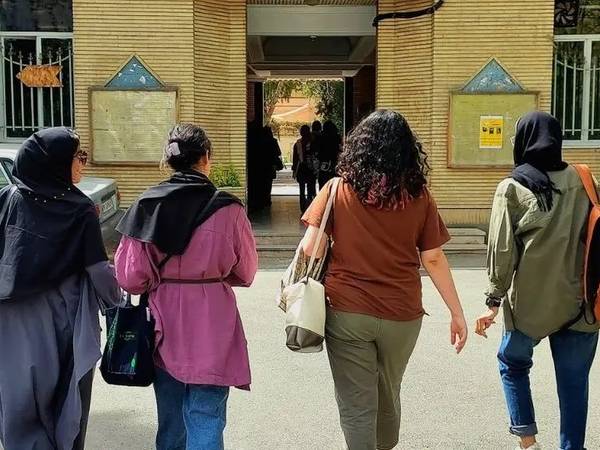The details of Iran's new hijab law, unveiled by media in Tehran on Saturday, including stricter measures and the potential rise of vigilantism, have deeply unsettled many Iranians.
The full text of the legislation, recently disclosed to the public, has unveiled previously hidden provisions, including requirements to establish "popular" groups tasked with issuing verbal and written warnings to individuals who fail to comply with the new law.
In recent days, some social media users and anti-immigrant activists have launched campaigns opposing the exemption in the new law that allows "foreign nationals with official residence documents" to bypass the Iranian citizenship requirement for joining these "popular" groups.
Iranian officials always refer to millions of Afghan immigrants who live in Iran as “foreign nationals”.
Under the Iranian government's interpretation of Islamic practice, "popular" groups or religious individuals are authorized to intervene in public spaces and urge citizens to comply with hijab regulations.
Anti-Afghan immigration activists argue that the exemption made in the hijab law will allow Afghan immigrants with ties to the Revolutionary Guards (IRGC) to form vigilante groups to harass women for hijab.
Such concerns are exacerbated by the history of the IRGC’s recruitment of Shia Afghans to fight alongside Iranian forces in Syria during the Syrian civil war.
Diaspora activist Elham Omidvari criticized the emphasis on permitting “foreign nationals” to issue hijab warnings to Iranians in a tweet on Sunday. She argued that the hijab law should be opposed in its entirety, as it fundamentally violates the basic human rights of Iranian women.
Lawmakers deliberately included a clause to allow “foreign nationals” to warn women for hijab to "divert people’s attention from the other tragedies" stipulated in the hijab laws, another diaspora activist Hatef Motahhary argued in a tweet.
“As if now the women’s problem is whether it is an Afghan or a Basij militia member who will warn them for hijab!” he wrote.
The new law has criminalized “encouragement” to defiance of hijab rules, as well as “derision and insults” to women for wearing it.
Such offenses will be punishable by cash fines, refusal of an exit permit to leave the country, a ban of six months to two years on social media activity, a prison sentence of two to six years, or 74 lashes.
Tens of viewers have responded to Iran International TV’s inquiry about how they expect the hijab law to affect their lives. Many of them have said Iranians will continue civil disobedience and refuse to abide by the hijab law despite the cash fines, prison sentences, and deprivation from services that the government should provide to them.
The Guardian Council approved the hijab law in mid-September. Typically, such legislation would be officially communicated to all government agencies by the president within a few days for implementation. However, President Masoud Pezeshkian has neither taken this step nor made any public comments on the matter.
If Pezeshkian fails to communicate the law, the onus will be on Parliament Speaker Mohammad-Bagher Ghalibaf who said a few days ago that the process of the public announcement and enforcement of the highly controversial legislation was delayed for “security reasons related to the anniversary of the 2022 [protests]”.
The protests that lasted several months and spread across the country were sparked by the death of 22-year-old Mahsa Amini in the custody of morality police in September 2022.
Pezeshkian’s supporters insist that he should refuse to communicate the hijab law because he made a promise to Iranians not to let women be harassed for hijab.
“Mr. President, the hijab law is a banana peel for your government—one that could cause its downfall,” Amir Tanha, a prominent social media activist with a large following on X, tweeted on Saturday. “By endorsing it, you will only pit yourself and your government against the very people who voted for you. Let the Parliament take responsibility for communicating this flawed law,” he added.
